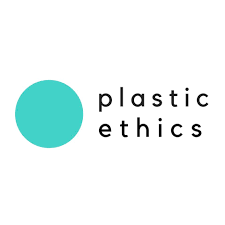The ocean of the future should be filled with fish not plastic, Ogilvy & Greenpeace campaign tells supermarkets
A new campaign launched today by Ogilvy UK and Greenpeace presents a stark vision of our future ocean if action is not taken to stem the tide of throwaway plastic pollution. It urges supermarkets to lead on reducing the amount of plastic packaging they produce, and features the voices of children who think ‘there should be millions of fish and zero per cent of plastic’ in the ocean.
The impactful film, created for Greenpeace by advertising and marketing agency Ogilvy, comes off the back of a Greenpeace petition calling on supermarkets to dramatically reduce their plastic footprint, which has already been signed by more than 415,000 people to date.
The concept behind the campaign was born through shocking statistics such as a truckload of plastic enters our oceans every minute. Since plastic take decades and sometimes even centuries to break down, it persists in the marine environment for an incredibly long time, whilst more and more accumulates. The Ogilvy UK team wanted to illustrate the ugly reality of plastic waste.
The video opens on a school-trip. An excited group of children are queuing at Dingle aquarium in the Republic of Ireland to see an ‘Ocean of the Future’ exhibition. The children excitedly shout out what they are most looking forward to seeing – penguins, octopus, catfish – and eyes-wide they eagerly rush into the aquarium to marvel at the abundance of ocean life.
But as the children look into the water they realise that they aren’t seeing colourful fish and marine wildlife, the dark aquarium is actually full of single-use plastic items like bottles, bags and six-pack drinks can rings. The plastic floats and glides through the water like we expected the fish to do.
The children are dismayed as they realise that there aren’t any fish in the water at all. The ocean of the future they see is clogged up with plastic rubbish. Information signs in the aquarium provide details of the plastic drinks bottle and six-pack ring, to portray a lifeless ocean filled with plastics rather than the precious marine life we love, and have come to love even more through series such as David Attenborough’s Blue Planet II.
The video features ocean plastic pollution that was collected during a beach clean of the local beach at Dingle, near to the aquarium. It highlights that UK supermarkets generate 800,000 tonnes of plastic packaging every year and leads to a Greenpeace petition calling on supermarkets to dramatically reduce their plastic footprint, which has already been signed by more than 415,000 people.
‘Ocean of the Future’ is an integrated campaign which will be shared with audiences online including through YouTube, Facebook, Instagram and Twitter, with encouragement to share it using the hashtags #endoceanplastics and #oceanofthefuture. The campaign is appearing on digital screens in Westfield Stratford and White City shopping centres in London and will later be screened in cinemas, taking the concept to the big screen where audiences will feel immersed in ocean plastics similar to how the children did.
Mick Mahoney, Chief Creative Officer, Ogilvy & Mather Advertising London, said:
“We’re extremely proud to be partnering with Greenpeace to tackle what is a hugely pressing issue. Aquariums are often viewed as perfect, manicured worlds which give us a false sense of security when it comes to the state of our ocean. What we wanted to bring to life was the reality of what the future looks like if we continue as we are today. The support we’ve had to bring this idea to life has been incredible.”
Louise Edge, senior oceans campaigner from Greenpeace UK, said:
“This video provides such a powerful illustration of what’s at stake. We’ve seen from our own scientific surveys how plastic pollution affects the most iconic wildlife in the UK, from gannets on the Bass Rock to basking sharks in the Hebrides. Ocean plastic around the world causes the deaths of hundreds of thousands of marine animals each year.
“A rubbish truck load of plastic goes into the world’s oceans every single minute, and supermarkets and other retailers need to act fast to turn the tide. Our supermarkets produce an enormous amount of packaging, so we’re asking them to take responsibility for this and eliminate non-recyclable ‘problem plastic’ packaging and phase out single-use plastic packaging from all their own-brand products completely.”
The Greenpeace petition calling for supermarkets to reduce their plastic footprint, signed by more than 415,000 people, is online here.
